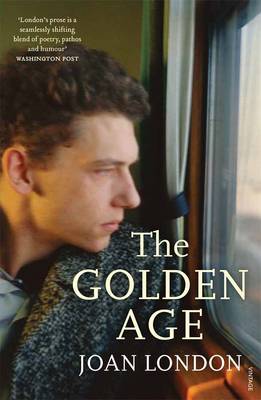
The Golden Age is a Perth convalescent hospital for children recovering from poliomyelitis. Under the care of dedicated nurses and physiotherapists, the children are taught to use their limbs again and to gain the independence necessary for their return to the outside world. In this nurturing environment, cut off from their familiar lives with family contact limited, the children form attachments to each other and the dedicated staff who are overseen by Sister Olive Penny, a professional and caring nurse with a deep understanding of the vagaries of the human heart.
Twelve year old Frank Gold has been sent to the hospital from the Infectious Diseases Branch of the Royal Perth Hospital where he had become close to an older polio patient, the critically ill Sullivan Backhouse, who had opened up for Frank what becomes his vocation – writing poetry. At the Golden Age, Frank is drawn to beautiful and calm Elsa Briggs. The two oldest children in the hospital, they form a close bond and share their stories of their lives before polio and their struggles with the limitations the illness has placed on them.
Frank and his family are displaced Jewish refugees from Hungary who arrived during the mass resettlement following World War 2. Like so many who had survived the war, they are the last living members of large extended families. Frank’s father Meyer, a survivor of the forced labour camps, drives a soft drink truck and is slowly coming to see the ‘mystery and potential’ of this place more than a world away from cosmopolitan pre-war Budapest. The struggle to adapt is harder for his wife Ida, now working as a milliner, who was a concert pianist and has not touched the piano since Frank became ill. Life both within and outside the hospital is beautifully drawn in Joan London’s lyrical poetic prose which evokes the light and heat as well as the combination of blandness and uniqueness of the Perth suburban landscape in 1954. Even the more minor characters in The Golden Age are rounded, from Elsa’s parents to wheelchair bound Albert Sutton who believes he cannot become well until he returns home. The story is told in the third-person and moves fluidly between all points of view including the more minor characters to produce a rich and complex story.
Ultimately The Golden Age is a story of transitions – from sickness to health, from childhood towards adulthood, from outsider to belonging. It is also a story of the many forms love takes and the way it helps us survive. Memorable and gently told, The Golden Age stayed with me for days after reading it.
A more detailed review can be found here.
Pingback: 2017 – A Year of Reading | Catherine Meyrick